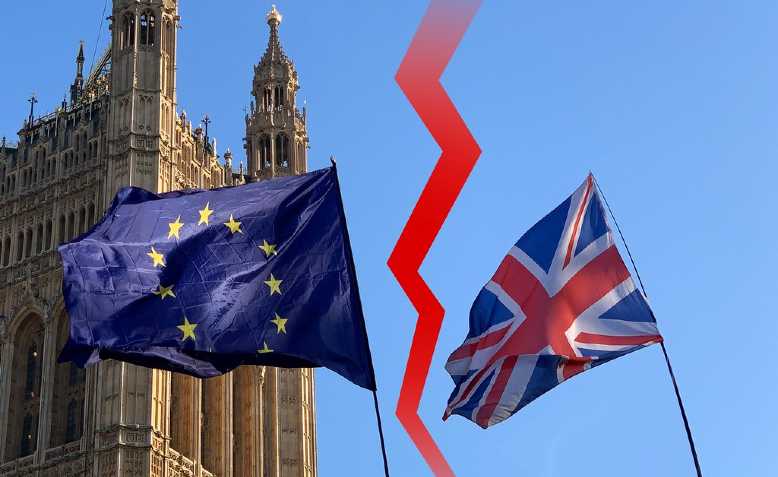 Brexit. Photo: Cristolph Scholtz/cropped from original/licensed under CC2.0, linked at bottom of article
Brexit. Photo: Cristolph Scholtz/cropped from original/licensed under CC2.0, linked at bottom of article
As gas and electricity prices rises this month by 54%, the Tories refuse to take control of the energy crisis, argues Martin Hall
Throughout the period 2016-2019, Tory ministers repeatedly told us that bills would be slashed once the UK left the EU.
The 5% VAT rate on energy would be removed and families would find themselves with more money in their pockets. This would benefit those with the least the most.
Fast-forward to 2022, and the Ofgem price cap has risen to £1971, up an eye watering £693.
But here’s the thing: it is easier to control prices outside of the EU’s Internal Energy Market (IME), which is effectively a sub-set of the Single Market.
Why? Because it was set up to liberalise the energy market, increase competition and reduce monopolies. It is another EU measure that opens up public services to the market. Suppliers are free to determine the price of their product.
Of course, state aid is allowed in times of crisis. Indeed, the European Commission recommended member states adopt tax cuts and state aid last year. Some countries in the bloc have cut energy taxes and halved the sales tax on household energy.
And publicly owned companies can and do take part in the IME. EDF, which is 80% publicly owned, provide around two-thirds of the energy in France. And in France, EDF has been forced to take the hit, with a consequent price rise of only 4%.
The principal issue in the short term is political will, not whether or not a country is in the EU. The Tories could cap prices, introduce a windfall tax and remove VAT on bills. But in or out of the EU, they won’t.
Does this mean EU membership is not a factor in this conversation, then? No, it doesn’t. Outside of the EU, much more radical measures could be brought in.
Energy could be nationalised and not run for profit, as could oil companies. And let’s be clear what we mean by nationalisation: state-ownership of the production, supply, transmission and distribution of all energy, not a market in which public companies can bid along with private.
This would include taking control of the inappropriately named National Grid, which is fully privatised and has paid out £1.4billion to shareholders in the last year.
It would mean taking control of Shell and BP, who posted profit forecasts of almost £40 billion for 2021/2022. Neither company has paid a penny in tax on North Sea oil and gas drilling in the last 3 years.
In the meantime, a windfall tax would be a start. The Tories are saying that can’t happen because the companies won’t have the funds to transition to low-carbon energy. But Shell and BP have given £147bn to shareholders in the form of dividends and share buybacks over the past ten years.
We need capital to shoulder the burden, not labour. Those dividends could have paid out to the workers in the form of higher wages. They could have subsidised the price of gas and oil and kept prices down.
Of course, the Tories’ vision of Brexit wasn’t based on any of this. Taking these steps would require a radical rupture from the failed politics of the last 40 years.
The Tory vision of Brexit was about freeing up capital further and creating a new, global Britain – like an Empire tribute act.
But voters, in particular those in the so-called ‘Red Wall’, were expecting to see record investment and improvement in living standards.
They were expecting new jobs, new opportunities and for government to provide a leg-up, especially in times of crisis.
They weren’t expecting to have to choose between putting the heating on and eating.
Join Revolution! May Day weekender in London
The world is changing fast. From tariffs and trade wars to the continuing genocide in Gaza to Starmer’s austerity 2.0.
Revolution! on Saturday 3 – Sunday 4 May brings together leading activists and authors to discuss the key questions of the moment and chart a strategy for the left.

